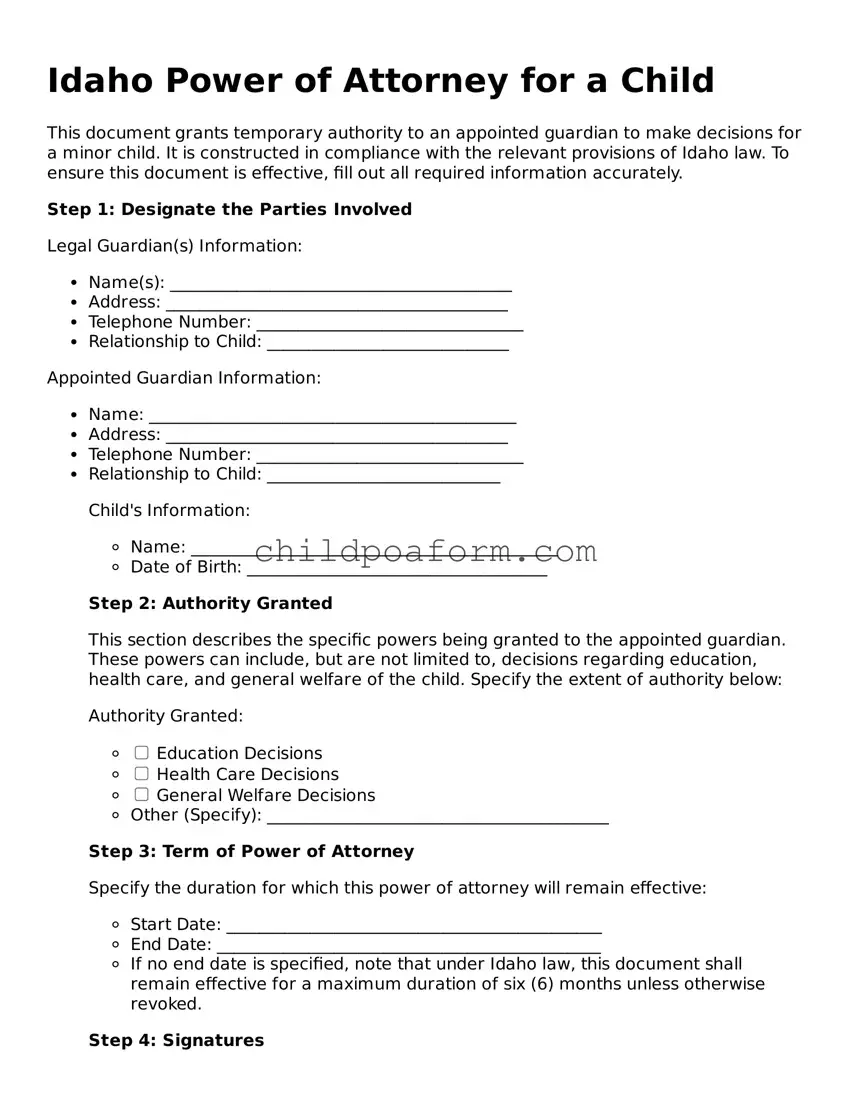Instructions on Utilizing Idaho Power of Attorney for a Child
A Power of Attorney for a Child is a crucial document that allows a parent or guardian to grant temporary authority to another trusted adult to make decisions and take actions concerning the care of a minor child. This can include decisions regarding schooling, medical care, and other important aspects of a child’s life. It’s particularly useful when the parent or guardian anticipates being unavailable due to various reasons such as travel, illness, or military service. Understanding and completing this form accurately ensures that a child's needs are met even in the parent's or guardian's absence. Below are the detailed steps to fill out the Idaho Power of Attorney for a Child form correctly.
- Start by clearly printing the date at the top of the form. This date marks when the power of attorney will take effect.
- Enter the full names and addresses of the parent(s) or current legal guardian(s) in the designated sections.
- Specify the full name and date of birth of the child or children to whom the power of attorney will apply.
- Next, provide the name and address of the person(s) being appointed as the attorney-in-fact, the individual who will have the authority to make decisions on behalf of the child.
- Detail the specific powers being granted. This section allows you to specify which decisions the attorney-in-fact can make on behalf of the minor, such as those related to education, health care, and general welfare.
- Include any special instructions or limitations to the attorney-in-fact’s powers. This could relate to certain decisions that the parent(s) or guardian(s) wish to restrict or specific conditions under which the power of attorney will no longer be effective.
- Review the term of the agreement. The document should specify how long the power of attorney is to remain in effect, including any conditions that would cause the power to end.
- Sign the document in front of a notary public. The parent(s) or guardian(s) granting the power must sign the form, and the signature must be notarized to ensure its legality.
- The appointed attorney-in-fact should also sign the form, acknowledging their acceptance of the responsibilities granted by the power of attorney.
Filling out the Idaho Power of Attorney for a Child form correctly is just the beginning. Once completed, it’s important to distribute copies of the document to relevant parties, such as the child’s school and healthcare providers. This ensures that the appointed individual can act on the child's behalf when necessary. It’s also advisable to keep a copy of the form in a safe but accessible place, in case it needs to be presented or referred to at any time.
